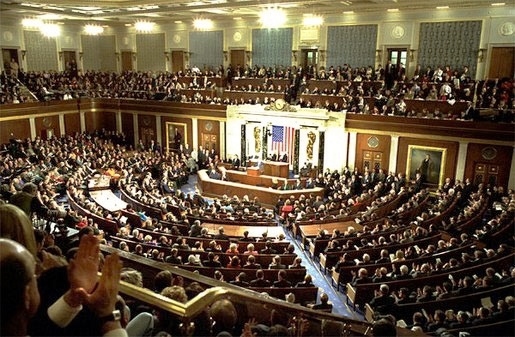2 hours ago
Latest Updates
Featured Posts
Get in Touch
Location:
123 Innovation Street
Tech District, CA 94105
123 Innovation Street
Tech District, CA 94105
Email:
[email protected]
[email protected]
Phone:
+1 (234) 567-890
+1 (234) 567-890
What are the Five Most Important Functions of Legislatures
- Lawmaking: Legislatures have the primary function of making laws. They propose, debate, amend, and enact legislation that governs various aspects of society, including public policy, taxation, criminal justice, and civil rights.
- Representation: Legislatures serve as a forum for representing the interests and concerns of the citizens they represent. Elected representatives advocate for the needs of their constituents, ensuring that diverse voices are heard in the legislative process.
- Oversight: Legislatures provide oversight over the executive branch of government, including monitoring the implementation of laws and policies. Through committees, hearings, and inquiries, legislators hold government officials accountable for their actions and decisions.
- Budgetary Authority: Legislatures hold the power of the purse, meaning they have the authority to approve government budgets and allocate funds for various programs and services. This function involves scrutinizing budget proposals, making spending decisions, and ensuring fiscal responsibility. Read about What is Local Legislation
- Conflict Resolution: Legislatures serve as a forum for resolving conflicts and differences through debate, negotiation, and compromise. By facilitating dialogue among diverse political interests, legislators seek to find common ground and reach consensus on contentious issues facing society.
Legislatures
Legislatures serve as the cornerstone of democratic governance across the globe. They are vital institutions that play multifaceted roles in shaping societies, enacting laws, and representing the will of the people they serve. [caption id="" align="aligncenter" width="384"] Legislatures[/caption]
Legislatures[/caption]
Representation of the People
One of the primary functions of legislatures is to represent the interests and voices of the citizens. Through elected representatives, legislatures ensure that diverse viewpoints and concerns are heard and addressed in the decision-making process.Lawmaking Process
Legislatures hold the key responsibility of drafting, debating, amending, and passing laws that govern various aspects of public life. This process involves extensive deliberation to ensure that laws are comprehensive, fair, and reflective of societal needs and values. Discover about What are the 16 Concepts of Global PoliticsOversight and Accountability
Legislatures serve as a check on executive power by overseeing the actions of the government and holding officials accountable for their conduct. Through mechanisms such as hearings, inquiries, and investigations, legislatures scrutinize policies and actions to prevent abuse of authority and ensure transparency.Conflict Resolution
In politically diverse societies, legislatures provide platforms for resolving conflicts and negotiating compromises among competing interests. By fostering dialogue and cooperation, they facilitate consensus-building and help prevent escalation of tensions into crises.Budgetary Authority
Another crucial function of legislatures is the allocation and oversight of public finances. Through the budgeting process, they determine how resources are distributed and utilized to address pressing needs, fund essential services, and promote economic stability and growth. Learn about What is Moral DiplomacyProtection of Minority Rights
Legislatures safeguard the rights and interests of minority groups within society by enacting laws and policies that prevent discrimination and promote inclusivity. They serve as guardians of fundamental freedoms and ensure equal treatment under the law for all citizens. https://www.youtube.com/watch?v=HPVt4KrVLU4&pp=ygVBV2hhdCBhcmUgdGhlIEZpdmUgTW9zdCBJbXBvcnRhbnQgRnVuY3Rpb25zIG9mIExlZ2lzbGF0dXJlcyBpbiBlbmc%3DPromotion of Public Discourse
Legislatures provide platforms for robust debate and discussion on pressing issues facing society. By encouraging dialogue and exchange of ideas, they foster public engagement and awareness, empowering citizens to participate in the democratic process.Facilitation of Government Stability
Through the enactment of stable and predictable legal frameworks, legislatures contribute to the overall stability of government and society. By upholding the rule of law and respecting democratic principles, they help maintain political order and prevent upheaval.Ensuring Checks and Balances
Legislatures function as part of a system of checks and balances, alongside the executive and judicial branches of government. Through their oversight and legislative powers, they prevent the concentration of power in any one branch and uphold the principles of separation of powers.Adaptation to Societal Changes
Legislatures play a dynamic role in responding to evolving societal needs and challenges. They have the flexibility to enact new laws and amend existing ones to address emerging issues such as technological advancements, social changes, and global trends.International Relations
Legislatures also engage in diplomatic efforts and international cooperation to promote peace, security, and prosperity. Through treaties, agreements, and diplomatic exchanges, they contribute to building strong relationships with other nations and advancing shared goals.Public Education and Awareness
Legislatures have a responsibility to educate the public about the legislative process, government functions, and civic rights and responsibilities. Through outreach programs, public hearings, and informational campaigns, they empower citizens to participate actively in democracy. [caption id="" align="aligncenter" width="350"] Legislatures[/caption]
Legislatures[/caption]
